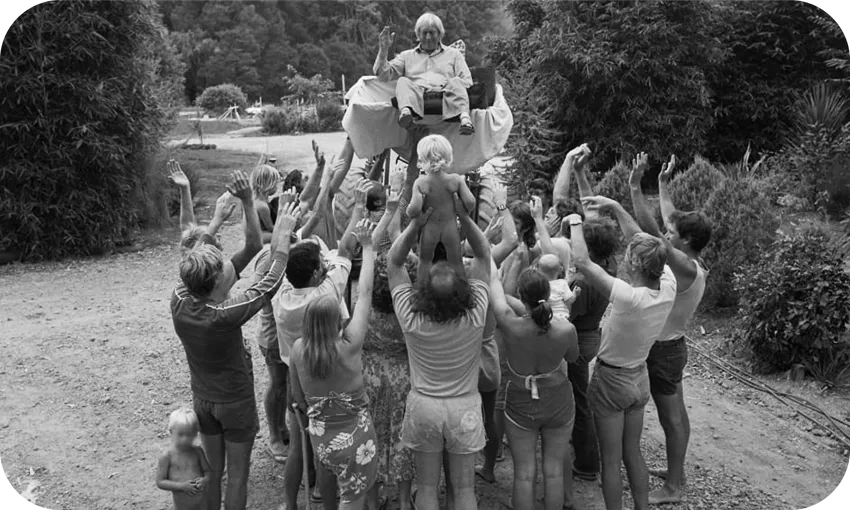The battle that was not for the Bard at all
A frenzy over an arts funding decision reached fever pitch this week. The upside? We did, in the end, get some nuanced coverage of arts funding issues in New Zealand
Mōrena and welcome to The Bulletin for Thursday, October 18, by Anna Rawhiti-Connell. Presented in partnership with Z Energy.
In today’s edition: prime minister to travel to Antarctica, social investment set to be 2023 election issue; delay in co-governance paper may inhibit progress; but first, an upside to the so-called “cancelling of Shakespeare” debate
All the world’s a stage upon which we can get played (Image: CC BY-NC 2.0)
Double, double, toil and trouble - from funding decision to full blown frenzy
I participated in the Sheilah Winn Shakespeare festival back in ancient times. I had one word as Lady Capulet - a trilled and loud “Juliiieeet”. I delivered it with such aplomb, I was commended above everyone else who had roles more fundamental to the scene being performed. I pulled focus and it's a convenient analogy for what’s happened over the last week in relation to the funding decision made by Creative New Zealand about the Shakespeare Globe Centre New Zealand (SGCNZ). I once again commend Sam Brooks’s forensic examination of how things got overblown - beyond the facts and amplified by the way it was framed in the media.
Is not the truth the truth?
In the interests of clarity, CNZ declined an application for $31k from SGCNZ to fund an executive assistant and succession planning, as confirmed by CEO, Dawn Sanders. Also confirmed was the fact that the Sheilah Winn Festival, which SGCNZ is most known for, would continue despite not receiving that funding. CNZ did not “cancel Shakespeare”. Brooks writes that the media stumbled in multiple ways including by framing this as a debate about cancel culture. Hayden Donnell looked into the coverage for RNZ’s Mediawatch last night. Donnell said he thinks the thing really driving a lot of the coverage was “the almost irresistible culture war narrative”.
If money go before, all ways do lie open
Writing for Stuff, James Wenley said the focus on the one funding decision masked a broader issue - that of arts funding in New Zealand. In his book Yes, Minister, former arts minister Chris Finlayson wrote “the primary responsibility of a National minister for arts, culture and heritage is to keep the luvvies at bay and stop them complaining.” Arts and culture policy is never going to be a big election platform but CNZ has repeatedly warned it has a limited amount of money to invest at the moment. CNZ is largely funded via the Lotteries Commission meaning the amount fluctuates each year. The government contributes a small amount. As Wenley writes, in 2006/2007 the crown gave $15.45m to CNZ ($21.56m in today’s dollars). CNZ only received $16.68m in baseline funding in the 2022 budget.
All’s well that ends well?
In the end the prime minister intervened on the SGCNZ issue and the Ministry of Education will provide the funding not provided by CNZ. While SGCNZ got its money in the end, it’s a short term solution amid longer term funding issues within the arts. All and all, it’s been a reminder to be on guard about the lure of populist narratives. That it’s been covered by The Bulletin, Mediawatch, the Herald’s Front Page and the RNZ/Newsroom podcast The Detail in the last 24 hours does say something good about the media’s capacity to recalibrate and reflect. As the man himself said “Oppose not rage while rage is in its force, but give it way a while and let it waste.”
Business Is Boring, in proud partnership with Spark Lab
After travel opened her eyes to the pollution caused by big business, this week’s Business is Boring guest decided to do something about it. The Sustainable Business Network now helps businesses to become more sustainable through training, advice, and connection to other businesses doing the same. Sustainable Business Network founder and CEO Rachel Brown joined Simon Pound on Business is Boring to talk about how with a little bit of effort, businesses can benefit massively from sustainability. Listen to the podcast here.
Prime minister to travel to Antarctica
Prime minister Jacinda Ardern will travel to Antarctica next Tuesday to mark the 65th anniversary of Scott Base, New Zealand’s Antarctic home. The base is currently undergoing a $344m redevelopment, due to be completed in 2028. After a public competition to choose the colour of the buildings, it will remain green. Ardern is a self-professed fan of Antarctic explorer Earnest Shackleton, once saying she’d consider getting a tattoo of him and naming Shackleton’s sled as her favourite item at Te Papa. Ardern will see the research and environment protection efforts being undertaken at Scott Base first-hand and return next Friday.
Social investment back on the agenda for Election 2023
In a speech yesterday, National’s deputy leader deputy Nicola Willis said the party was committed to bringing “social investment to life" if elected next year. Social investment has its proponents (Bill English among others) and its critics. Julienne Molineaux and Simon Chapple interrogated it for The Spinoff back when it was a live issue during the 2017 election campaign. Willis also introduced the idea of a social investment fund which New Zealanders could choose to invest in. It’s an idea that’s been used overseas, usually in the form of social investment bonds (SIB). A pilot of an SIB scheme is currently being trialled between Oranga Tamariki and the Genesis Youth Trust. An early evaluation found it demonstrated overall positive findings with more than a side of things to be learned. Finance minister Grant Robertson has said the idea amounts to "privatisation" of the welfare system.
Did you know that our readers are our largest funders?
Big tech companies dominate advertising spends in New Zealand, towering over locally owned, independent media organisations like The Spinoff. We rely on our readers to help fund our journalism and keep it freely accessible to all. Don’t let international corporations control our stories, support local journalism by donating today.
Co-governance plan progress delayed
Newsroom’s Jo Moir reports on the delayed progress of the draft United Nations’ Declaration Plan. The plan would outline an approach to co-governance and if adopted, would be the government’s response to the UN commitment the National party signed New Zealand up to in 2010. Māori development minister, Willie Jackson is hopeful the authors of the draft plan will have a proposal he can take to cabinet when he meets with them on Friday. Moir writes that it’s possible the government has already run out of time to make any real progress on this before next year’s election. “It’s getting late and if we’re going to put it out to all New Zealanders we’re at a point where we need to be doing that straight away,” said Jackson.
Click and collect
Tractors may cause disruption - Groundswell NZ are protesting today.
Protesters halting highways across Wellington in the name of climate change facing criticism.
Interesting column in the Herald (paywalled) from Eric Crampton on the relationship between increasing supermarket competition and the Overseas Investment Office.
Dr Tony Hanne found guilty of professional misconduct. Hann’s case has prompted calls to change the strict criteria for prescribing ADHD medication.
More byelections! This time at local government level, only 13 days after voting closed.
Got some feedback about The Bulletin, or anything in the news? Get in touch with me at thebulletin@thespinoff.co.nz.
If you liked what you read today, share The Bulletin with friends, family and colleagues.
This month’s Gloriavale hearing has been chillingly evocative of the abuse Dr Caroline Ansley endured as a child at Centrepoint in the 1980s. She wonders why we still allow these predatory environments to thrive, and where the ongoing support is for their victims. Shanti Mathias looks at what the debate over lecture recordings says about the future of tertiary education. Meriana Johnsen talks to those involved in the long battle to repatriate the stolen ancestral remains of 64 Māori and Moriori from a museum in Austria. Kirsten O'Regan has some lessons for New Zealand from Greece’s post-Covid tourism boom. Mad Chapman wonders if NZ Rugby knows there’s a World Cup on at the moment – or are they too busy buying NFTs?











I am watching the rugby World Cup !! And loving it. Agree, where’s the hype?? Man, it’s amaIzing! I got inspired after listening to Ruby’s interview, and now also reading her book. But I am def disappointed the all blacks aren’t doing more to raise the profile.